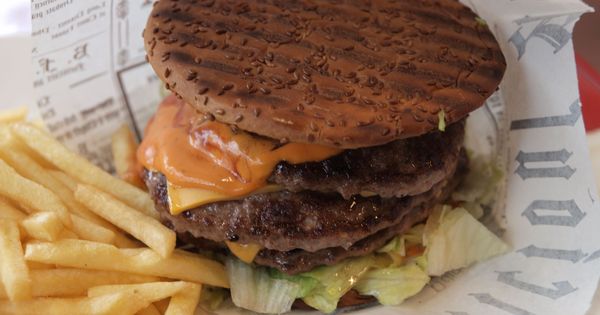We don't know what's going on inside our bodies. We don't know what's going on subcutaneously, under the skin. We know what's happening in Bangalore or Budapest, but we don't know what's happening in our bodies. We have information from the other side of the world, but not from a few inches away. This lack of knowledge has actually resulted in surprising blank spots on the map.
In the 1990s, there was this concept of getting lost. You'll never be confused again. GPS allows you to know your location at all times. In the future, you will be able to know your internal state at all times.
It is useful to study different cultures of health care and fitness. In terms of individual and organizational responsibility, they are almost diametrically opposed.
Although we view healthcare as an institutional responsibility, your doctor is only with you for 30 minutes, and you are with your body all the time. If you bring a doctor's data from the internet, it's either right (and undermines the value of the doctor) or wrong (and ignorant). Either way, the motivation for self-care is lost. But even a highly competent doctor cannot replace self-care.
This is interesting because we accept that we are personally responsible for our own fitness. Personal trainers are seen as helpers at best.
We may find that self-care based on self-measurement, personal genomics, and fitness is just the magic bullet. Fitness is a great entry point into self-care and a long-term option that combines an individual's personal data with extensive clinical data.
Self-measurement is not an “n=1” science (small sample size). It is “t=infinity” science (long time frame). This provides unprecedented personal health data. Smart food companies use this data to provide personalized nutrition based on the data.
Your body, your choice. If you can legally skydive and bungee jump, and if you can serve in the military and risk life and limb, then you should be able to take any risks you want to your health. That means expanded rights to try drugs and treatments, and new avenues outside the FDA, at home and abroad. Indeed, medical experimentation is more socially beneficial than the risky bungee jumping or skydiving.
When you eat something, it literally goes into your body. If society were smarter about this, maybe we could track it down. When you eat a piece of chicken or lettuce, where exactly are those fats, carbohydrates, and proteins going? Do they go to your eyes? Are they all spreading? Are they drawn to a particular location?
You are made of what you eat. Your body is being rebuilt by these foods. An interesting study is trying to track where different foods end up being deposited. This intersects with our knowledge of genetics and biochemistry and metabolism, the body's response to what we ingest, in the fields of pharmacogenomics and nutrigenomics. For example, you may personally metabolize caffeine or alcohol quickly or slowly.
Future historians may point out that just as previous eras were driven in part by nicotine and alcohol, this era was the era of sugar, caffeine, opioids, and social media. Perhaps the mainstream medicine of the time is always there, even if we can't see it.
Over the past 50 to 60 years, restaurant culture has become increasingly mainstream. We have gone from eating meals prepared by our families, where the people who feed us are also our health care providers, to outsourcing all our nutrition to capitalist entities that are not aligned with us.
That's why we eat sugary and unhealthy foods. Designed to be delicious so you can eat more and buy larger sizes. And later they suffer from diabetes and metabolic disorders. Let's examine the obesity epidemic. It's scary because it actually looks like a real epidemic.
Failing restaurants start dumping sugar and other additives into their food because people react to them. But it's a short-term unbalanced optimization.
It's like when Coca-Cola put cocaine in their cola. Today we say, “Wow, that's so bad.” But in recent years, when you add fruit syrup to yogurt, people say, “Oh, now it's selling!” In the future, when everyone is able to continuously measure their blood sugar levels, we will actually see the spikes in blood sugar levels that we are experiencing.
Then we take this era (when people ate sugar for breakfast and lunch, when kids ate sugar for snacks, when sugar was in everything) into consumer products. You will see it as similar to the days when drugs were mixed in.
Too much sugar is the reason why people are so fat now. That's why diabetes is so prevalent. Sugar starts to disturb the gut microbiome, causing other problems. It is very difficult to escape like second hand smoke. It's in almost everything. You really need to avoid eating sugar.
It's interesting to note the most nutritious foods – lettuce, tomatoes, fruits etc. – There is no nutritional information displayed. Because the complex nutritional components require a bit of chemistry experimentation.
Consider the video “I took a picture of myself every day for three years.” Could a simple selfie video become a diagnostic tool to track your health? Crucially, high-resolution videos of your face taken every day can reveal heart rate, jaundice, BMI, and many other health signals. The purpose is to determine how much can be estimated.
This device can be called a “magic mirror”. When I look at it in the morning, it says, “You look sick,'' and tells me why. By correlating magic mirror videos with other self-measured data (such as nutrition or fitness trackers), you can potentially provide a compelling demonstration of “if you do this, this is what will happen.”
Essentially, Magic Mirror allows you to create personalized “before/after” examples to visually show how your fitness or dietary changes are impacting your health and appearance.
Excerpted with permission Balaji's Anthology: A Guide to Technology, Truth, and Building the FutureEric Jorgenson, HarperCollins India.


